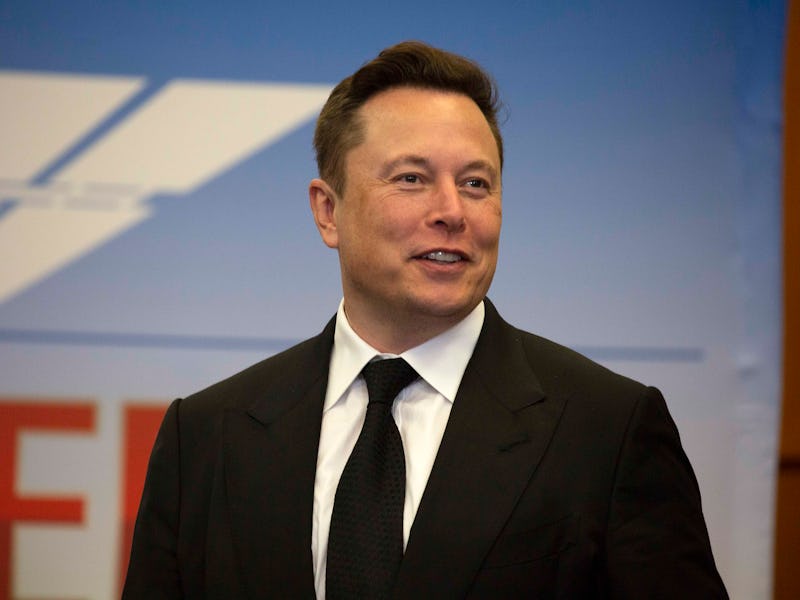When will SpaceX Starlink IPO? Elon Musk reveals what needs to change
CEO Musk suggested the company's satellite internet business could file an initial public offering. But don't hold your breath.

Want to own a piece of SpaceX?
SpaceX could open its satellite internet business to investment from the general public, CEO Elon Musk suggested Monday.
The space firm is perhaps Musk's most famous business, alongside electric car firm Tesla, but unlike Tesla it does not offer shares to the general public. Tesla was founded in 2003, and filed for an initial public offering in 2010, at $17 per share. Tesla shocked investors when its total market valuation soared past $400 billion this year, making it the most valuable automaker in the world.
Musk founded SpaceX in 2002, but has yet to announce any plans for a similar "IPO" to allow members of the public to invest.
On his Twitter page Monday, Musk declared that the company will "probably" hold an initial public offering for the Starlink aspect of SpaceX's business. This covers the satellite internet constellation SpaceX is in the process of launching. The system is designed to provide high speed, low latency internet.
But before that happens, some things will need to change:
"We will probably IPO Starlink, but only several years in the future when revenue growth is smooth & predictable. Public market does *not* like erratic cash flow haha. I’m a huge fan of small retail investors. Will make sure they get top priority. You can hold me to it."
The comments hint at the biggest problem with investing in SpaceX: Musk has focused the company on research into long-term projects with future payoffs. Musk voiced concerns going public could hinder goals like sending humans to Mars and establishing a city.
In Ashlee Vance's 2015 biography on Musk, the CEO reportedly sent an email to all SpaceX staff in 2013 about going public. He explained he was " increasingly concerned about SpaceX going public before the Mars transport system is in place." This, he claimed, has "always" been the company's number one goal. With the "long term nature" of the company's goal, and Musk's experience of going public with Tesla and SolarCity, Musk explained he was "hesitant to foist being public on SpaceX."
SpaceX's concept for a Mars city.
Starlink, with its focus on better internet access, could be a different story. The service is made up of a series of thousands of satellites orbiting at a low altitude, around 550 kilometers, offering gigabit internet speeds and faster response times than traditional satellite internet providers. SpaceX launched the first batch of 60 satellites in May 2019, and at the time of writing has launched a further 11 batches. It has begun a private beta service for selected testers, and old marketing literature claims it would offer services in the United States and Canada sometime in 2020.
It's unclear how much SpaceX could make from Starlink, but Musk has provided optimistic estimates. In May 2019, he told reporters the global internet connectivity industry accounts for around $1 trillion in revenue per year. SpaceX, he claimed, could access three or even five percent of that market. Musk said the firm believes "we can use the revenue from Starlink to fund Starship." Musk once estimated that a city on Mars could cost up to $10 trillion.
It's not the first time SpaceX representatives have suggested Starlink could IPO. Company president Gwynne Shotwell told Bloomberg in February that Starlink is "an element of the business that we are likely to spin out and go public." But the following month Musk said at the Satellite 2020 conference in Washington, DC that he was putting "zero" thought into the idea.
The Inverse analysis – SpaceX fans are keen to put their money into the company and show their support. While there are some indirect ways to invest, a Starlink IPO could be more appealing to some.
Musk has suggested before that he sees IPOs as a hindrance to long-term goals like the ones at SpaceX, and in 2018 he famously tried to take Tesla private in part to "remain focused on our long-term mission." It's also likely that investors would scrutinize SpaceX's ambitious plan to spend up to $10 trillion on a city on Mars. But for a business like Starlink, aimed at steadily generating revenue rather than spending trillions on a far-flung vision, investment may be a more enticing prospect.
As noted Monday, though, SpaceX will have to make Starlink's revenue look more predictable to satisfy investors.